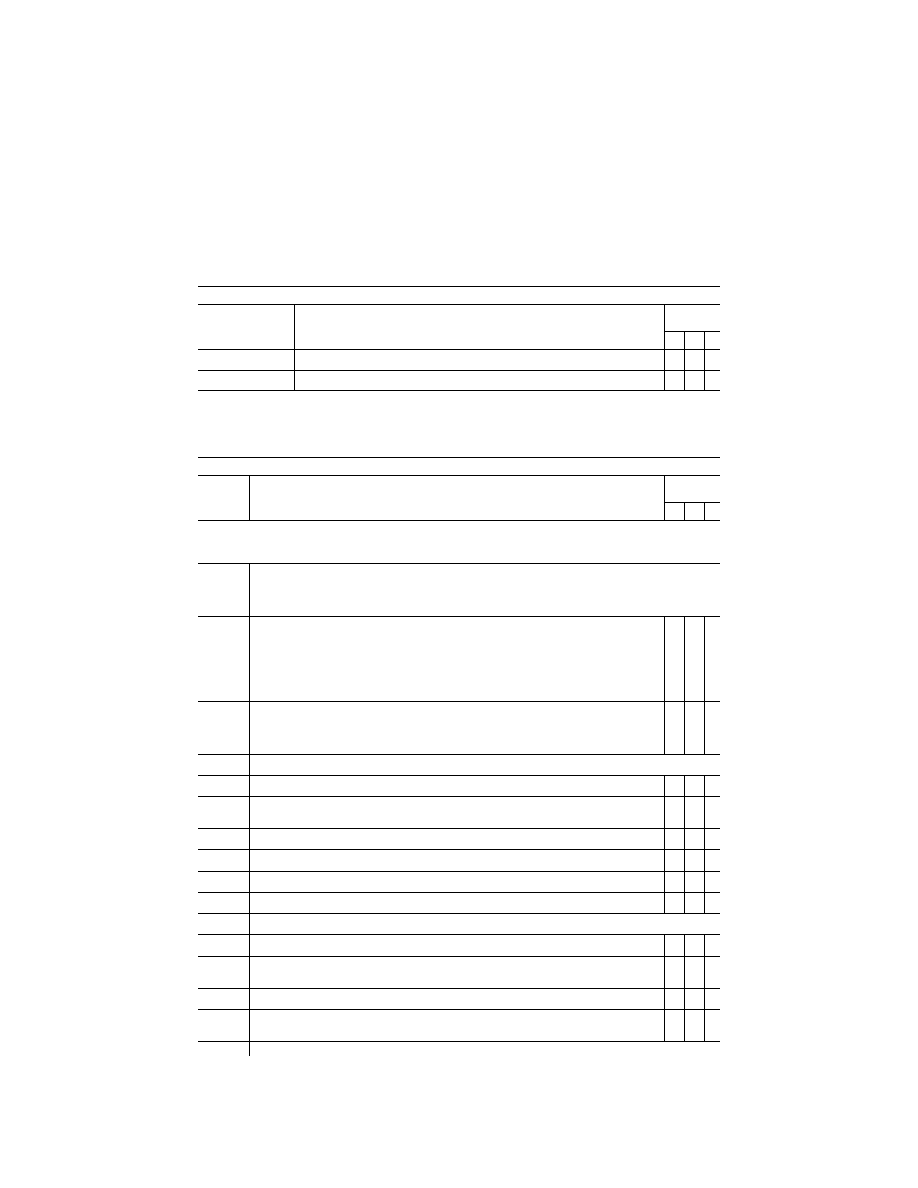
394
14 CFR Ch. I (1–1–19 Edition)
Pt. 60, App. C
T
ABLE
C3A—F
UNCTIONS AND
S
UBJECTIVE
T
ESTS
—Continued
QPS requirements
Entry No.
Operations tasks
Simulator
level
B C D
13.c. ...........................
Rotor brake operation ...........................................................................................................
X X X
13.d. ...........................
Abnormal/emergency procedures .........................................................................................
X X X
* ‘‘Autopilot’’ means attitude retention mode of operation.
Note: An ‘‘A’’ in the table indicates that the system, task, or procedure may be examined if the appropriate aircraft system or
control is simulated in the FFS and is working properly.
T
ABLE
C3B—F
UNCTIONS AND
S
UBJECTIVE
T
ESTS
QPS requirements
Entry No.
Visual requirements for qualification at the stated level
class I airport or landing area models
Simulator
level
B C D
This table specifies the minimum airport visual model content and functionality to qualify a simulator at the indicated level. This
table applies only to the airport scenes required for simulator qualification; i.e., two helicopter landing area models for Level B
simulators; four helicopter landing area models for Level C and Level D simulators.
1.
..............
Functional test content requirements
The following is the minimum airport/landing area model content requirement to satisfy visual capability tests, and
provides suitable visual cues to allow completion of all functions and subjective tests described in this attachment
for simulators at Level B.
1.a. ...........
A minimum of one (1) representative airport and one (1) representative helicopter landing area
model. The airport and the helicopter landing area may be contained within the same model. If
but if this option is selected, the approach path to the airport runway(s) and the approach path to
the helicopter landing area must be different. The model(s) used to meet the following require-
ments may be demonstrated at either a fictional or a real-world airport or helicopter landing area,
but each must be acceptable to the sponsor’s TPAA, selectable from the IOS, and listed on the
SOQ.
X
1.b. ...........
The fidelity of the visual scene must be sufficient for the aircrew to visually identify the airport and/or
helicopter landing area; determine the position of the simulated helicopter within the visual scene;
successfully accomplish take-offs, approaches, and landings; and maneuver around the airport on
the ground, or hover taxi, as necessary.
X
1.c. ...........
Runways:
1.c.1. ........
Visible runway number ............................................................................................................................
X
1.c.2. ........
Runway threshold elevations and locations must be modeled to provide sufficient correlation with
helicopter systems (e.g., altimeter).
X
1.c.3. ........
Runway surface and markings ...............................................................................................................
X
1.c.4. ........
Lighting for the runway in use including runway edge and centerline ...................................................
X
1.c.5. ........
Lighting, visual approach aid (VASI or PAPI) and approach lighting of appropriate colors ..................
X
1.c.6. ........
Representative taxiway lights .................................................................................................................
X
1.d. ...........
Other helicopter landing area:
1.d.1. ........
Standard heliport designation (‘‘H’’) marking, properly sized and oriented ............................................
X
1.d.2. ........
Perimeter markings for the Touchdown and Lift-Off Area (TLOF) or the Final Approach and Takeoff
Area (FATO), as appropriate.
X
1.d.3. ........
Perimeter lighting for the TLOF or the FATO areas, as appropriate .....................................................
X
1.d.4. ........
Appropriate markings and lighting to allow movement from the runway or helicopter landing area to
another part of the landing facility.
X
2.
..............
Functional test content requirements for Level C and Level D simulators
VerDate Sep<11>2014
16:30 Jun 25, 2019
Jkt 247047
PO 00000
Frm 00404
Fmt 8010
Sfmt 8002
Q:\14\14V2.TXT
PC31
kpayne on VMOFRWIN702 with $$_JOB